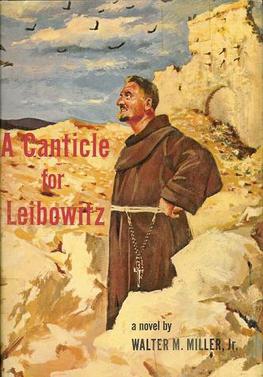 To Say Nothing of the Dog By Connie Willis
To Say Nothing of the Dog By Connie Willis
Read in March 2009
This was a very enjoyable jaunt through time in search of a missing bishop’s bird stump for the Coventry Cathedral’s restoration. It’s 2057 and Lady Shrapnell (very aptly named by the way) is restoring the Coventry Cathedral exactly as it was before it’s destruction in 1940 in a German air raid. She commandeers the services of Oxford’s space-time continuum researchers and lab to travel back in time and solve the mystery of the bird stump’s disappearance.
Initially, we meet Ned Henry, one of the researchers and time travelers, as he’s searching the still burning ruins of Coventry Cathedral in 1940 as an Air Raid Patrolman. He fails to locate the bird stump but starts acting strangely, a clear indication of severe time-lag. He returns to 2057 and is ordered by the Infirmary nurse to two weeks of bed rest. Lady Shrapnell will have none of that so Mr. Dunworthy, the head researcher or professor, send Mr. Henry back to 1888 on a simple mission and to hide him from the overbearing Lady Schrapnell.
Still suffering from the symptoms of the time-lag, Ned can’t remember the specifics of his assignment. He chances to meet a young man, a student at Oxford, who convinces Ned to hire a boat for a trip downriver on the Thames.
Ned continues to meeting unbelievably interesting quixotic people and unusual circumstances – all highly hilarious. I kept hearing or seeing the actors from Monty Python’s Flying Circus or Michael Caine performing the voices and antics of these delightful Victorian characters. Even the pets are supporting actors, especially Cyril the English bulldog.




